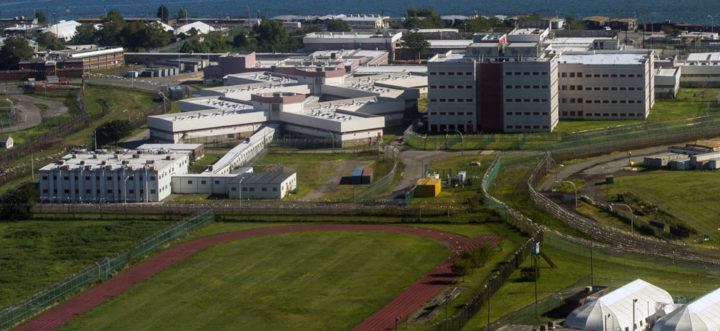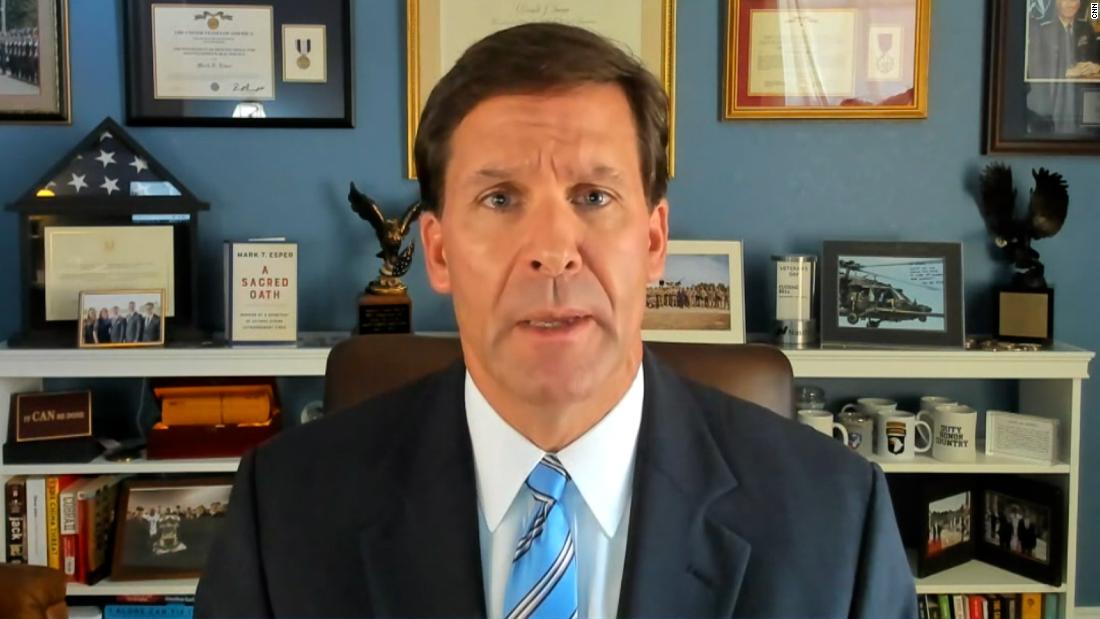Defending The Donald
A veteran defense attorney imagines how he would fare if he were chosen by the former president to represent him in a federal criminal prosecution. It doesn’t end well.

At some point, on most weekends, your local news carries a horrific crime story. Some creep murdered an elderly nun, or a busload of school children.
The police announce that the killer has been arrested at the scene, but not before he strangled to death the beloved police K-9, Buster. (photo always shown.) His bloody clothes have been seized. His boastful confession has been recorded; the security cameras captured the crime in progress.
You shudder and move on.
But somewhere in your city, dozens of public defenders and appointed defense lawyers like myself are asking, “Will I get assigned to this nightmare when the courts open on Monday?”
Playing through these possibilities is every defender’s fate. You can see what’s coming, or most of it, anyway. You morbidly begin to catalog a list of cascading disasters.
The media coverage of the new interest by the Department of Justice in prosecuting Donald Trump has triggered this occupational reflex in me.
Readers have been treated to a flood of commentary by former prosecutors focusing on the challenges that would face poor Merrick Garland and his crew in winning a conviction of Donald Trump.
The woeful picture they’ve painted makes it seem that Trump would positively enjoy his own criminal trial.
But it might be useful to take account of how things look from the other side of the bar.
A lifetime of Sabbath evening predictions—and of seeing many of them proved accurate— has put me in position to complement the prosecutorial hand-wringing.
“How Does It Look?”
By dusk on Sundays, your local defenders have already skipped ahead in assessing the weekend’s homicide news. They are helplessly playing through in their minds the inevitable conversations during which they try to explain the realities of the situation to their client.
I’ve been imagining my sessions—as his seventh lawyer, six predecessors having been fired, indicted, or quit after being stiffed on their fees—with Donald Trump.
All defenders know that the guiltier the client is, the more likely that he will be diligent about keeping in touch. He’ll call every day, several times, at odd hours. (“How does it look?”)
My new client, Donald, will be no exception to this rule. In fact, he will be an exemplar par excellence.
The real point of our many, many, conversations will be to establish that if things come to a bad ending it will be because of something I did, or failed to do—not because of any act that he himself may have committed.
If he is convicted it can only be because I was weak, or lazy, or cowardly, stupid, corrupt—in short, Pence-like.
But eventually, after months of these preliminary exchanges have established my lonely responsibility, there will have to be one last meeting.
There will be a final plea offer on the table. My client will have to confront the risks and rewards of putting the case before a jury. The defender’s duty is to convey a fair accounting of the facts.
And that will require knocking down some misapprehensions. I’ve prepared some notes.
“It Will Only Take One Juror”
I understand your position that we can’t possibly really “lose” at trial, because all that we (that is, I) have to do is seat one MAGA-hatted idiot. No sweat. We get a hung jury and a mistrial. Then, we declare victory, and trumpet your triumph over the Deep State.
They’ll never retry it.
Our problem here is that you don’t get to put people on a jury, you only get to knock them off. You have no real control over who takes their place.
This trial is taking place in the District of Columbia, where the jury pool will be saturated with government workers, and the spouses, children and neighbors of government workers. The odds are that the next juror up will not see government as a sinister, aggressive pathogen.
Of course, we will argue again for a change of venue because you feel that the District is a cesspool of Democrat die-hards, prejudiced against you. But when the Boston Marathon bomber can’t get a change of venue from Boston, I don’t like our chances for a move to Mississippi.
Besides, the plea offer expires before we’ll get a ruling anyway.
And don’t forget this trial is going to take weeks. During those first weeks, you’ll be sitting at the counsel table, while you’re being pummeled by the Government’s witnesses. These jurors will be watching you. Long days. No make-up. You’ll be on stage the whole time: the jurors never turn their camera off.
“But the Election was Stolen”
Well, a trial is a little different from a campaign rally or a call to Fox News, and we can’t just say that; we have to offer proof.
We will have to produce witnesses who can testify from personal knowledge about facts showing the theft. We don’t have any. No one has any.
Every time anyone has tried to do this in court, the judge has laughed.
On the other hand, the prosecutors have extensive proof that the election was not stolen. Whatever else this trial produces, it gives your enemies a unique platform for proving resoundingly that this election was remarkably clean.
They will take full advantage of the opportunity to bury the stolen election theory once and for all.
“Well, Everyone Says it Was Stolen”
What “people say” is hearsay. It can’t be admitted to prove the facts that they asserted. It isn’t evidence that the election was rigged. If we can produce witnesses who say under oath that they told you the vote was rigged, the judge will instruct the jurors they can only consider that they said it, not take it as true.
Yes, of course, there are exceptions to the hearsay rule, but those aren’t all good news either.
To begin with, things that you’ve said aren’t hearsay, they are “admissions” and they come in.
You have a talkative group of friends.
And although we can hope no one flips in the face of threatened long prison sentences, impoverishment and lifelong ignominy, the government has three or four people on its witness list who the prosecutors seem to believe have signed up with their team.
And since you’re charged with conspiracy, statements that your co-conspirators made in the course of and in furtherance of the conspiracy come into evidence too. Since they are your agents, their statements are your admissions.
All of them. That’s an exception to the confrontation rule.
And, of course, we’re going to be a long way from “everyone” saying the election was stolen. The Jan 6 Committee people wrapped nice packages of folks like Bill Barr, Rusty Bowers, and other Republicans who told you just the opposite, and put them under the Government’s Christmas tree.
You’re going to have to sit there for days listening to a parade of them.
“Well, I Believed it was Stolen”
Yes, everyone seems to think that’s our best defense. It wasn’t stolen; everyone told you it wasn’t stolen; but you believed it was stolen anyway.
Sincerely. You had no corrupt intent, so, “Not Guilty.”
We can try that.
You believed it was stolen because you are mentally ill? Or because you are simply a credulous dope? In theory, either could work. If we claim mental illness your niece, the psychologist, can help, but that strategy shifts the burden of proof to us.
(Congress changed the federal insanity defense rules after John Hinckley, Jr.’s acquittal.)
So maybe the best chance for an acquittal—or only chance—is proving that you were simply too dumb to appreciate what actually happened.
After all, so far, the government hasn’t found anyone who heard you say the election wasn’t stolen. Maybe we can ask the jurors to believe that since you didn’t say it, you must not have believed it.
Still, other people’s opinions about what you did and didn’t believe (maybe Jared’s, for example) won’t be admissible, and it will be pretty close to impossible to get an acquittal without you taking the stand yourself.
Whether you testify or not is completely up to you, not up to me. If you decide not to testify the judge will ask you directly in open court whether that is your personal decision. If you say “Yes” I guess you’d have to worry that this will look cowardly to the people who expected you to meet them at the Capitol.
If you do testify you’re going to have an unpleasant experience.
Prosecutors aren’t always great at cross-examination, but this time they have a lot of ammunition. There’s a lot of video to confront you with. You have to answer every question. There are many questions for which you have no good answer. The cross-examiner—even a barely competent one—has absolute control; the witness has none.
You’ll be at their mercy, on a public stage.
These Are the Options You Give Me?
These are your legal options and I’m ready to pursue any avenue you choose. Of course, we can go through the terms of their plea offer too.
How we approach the trial will matter to your future.
The chances of winning are very slim but real. One question for you is whether by taking the steps you need to take to win the trial you guarantee that you lose your public stature, and forfeit any hope of a Ford/Nixon pardon in the future if you are convicted.
You’ll need to play that through in your mind.

James Doyle
We have a status hearing on Friday, and the plea offer is off the table after that.
On a completely unrelated note. What do you hear about that new golf course in Qatar?
See also: Why Putting Trump on Trial Redeems American Justice, by James Doyle, The Crime Reporet, June 21, 2022
James M. Doyle is a Boston defense lawyer and author, and a regular columnist for The Crime Report. He welcomes comments from readers.

 Landwebs
Landwebs 






















